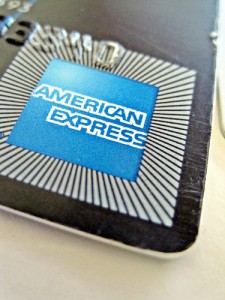 Credit cards are a great resource readily available to just about every adult. A simple piece of plastic is the cause of many people’s financial misery. But when they are used properly, they can quite beneficial to the user. When shopping for a card, there are many things to look out for, and not just high interest rates (which actually should not be a problem since a card used properly never carries a balance). There are a lot of “hidden” credit card fees that the card companies do not want to readily disclose.
Credit cards are a great resource readily available to just about every adult. A simple piece of plastic is the cause of many people’s financial misery. But when they are used properly, they can quite beneficial to the user. When shopping for a card, there are many things to look out for, and not just high interest rates (which actually should not be a problem since a card used properly never carries a balance). There are a lot of “hidden” credit card fees that the card companies do not want to readily disclose.
Annual Card Fee
For some reason many cards still insist on charging an annual card fee. The fee is usually small, about $5 per month. But there is no reason to keep paying this, especially when it is one of the easiest fees to get waived on the card. Even if you are accumulating enough reward points to justify the fee, at least ask to have it waived.
Cash Advance
Cash advances are the easiest way for credit cards to make money. Even if a person takes the advance, then pays the money back the following day, they are on the hook for usually 5% of the transaction amount. Avoid these types of loans no matter what.
Point Redemption Fee
One of the sneakier ways a card charges a fee is through a point redemption fee. The redemption fee can run around $30 to use the points, but it is often disguised. Rather than charge an actual $30, the card will charge more points (Suppose a person wants to cash in $200 worth of points, the card may charge an extra 3,000 points). It is a tricky move, and often there is no way to get around it.
Paper Statement Fee
Most of the bookkeeping for credit cards is done online. In fact, even those who still pay by check each month, their entire account is managed online. So rather than eat the costs of sending out statements, many cards charge their customers. This small $1 or $2 charge is simple to avoid: just use the computer to manage your card.
Foreign Transaction Fee
Usually Visa cards will not charge a foreign transaction fee, but many other cards will tack on 3% to each purchase made outside the United States (even barely over the border in Canada I have been hit with this). If you travel a lot, finding a card that waives the fee is going to be best.
There are a lot of fees the credit card companies can tack on (congress changed what fees may be charged in 2010, read about them here). Their goal is to catch the consumer off guard and cause them to rack up unnecessary fees making their convenient purchase cost a whole lot more than they anticipated. For my personal spending, I monitor my credit card statement online. Getting on once per week I scan through to make sure there are no fraudulent charges, and I double check to make sure I am not spending too much. By limiting my purchases to items I only truly need, and being able to pay the card off in full each month, I am able to avoid those ridiculous interest rates. The competition for credit cards is fierce. In order to avoid many of the other fees, shopping around and finding which one fits your needs should not be difficult, just make sure the perks are not short term marketing schemes to get new customers. For those who are already stuck paying fees on a card, just give the customer service number a call; fees on credit cards are some of the easiest to negotiate your way out of.

Yes the credit card companies love to try to sneak in fees wherever they can. Sometimes an annual fee may be worth it though. Usually with the cards with the very best rewards program there is an annual fee. With those cards you have to spend quite a bit for it to be worthwhile. If you do spend a lot though, the rewards you can earn make the annual fee quite negligible. You just have to do the math to see if it is worthwhile for you personally.